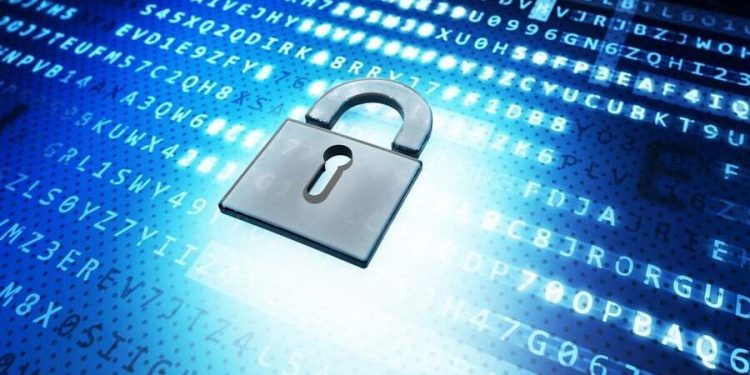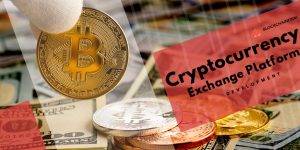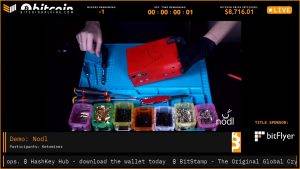Decentralized exchanges (DEXs) are becoming increasingly popular as they provide users with greater control and privacy over their assets. However, decentralized exchanges are also susceptible to security risks, such as smart contract vulnerabilities, front-running attacks, and transaction malleability. In this article, we will discuss some of the security measures that decentralized exchanges can take to mitigate these risks.
Multi-signature wallets
One of the most important security measures for decentralized exchanges is the use of multi-signature wallets. A multi-signature wallet requires multiple parties to sign off on a transaction before it can be executed. This helps to prevent unauthorized access to funds and reduces the risk of a single point of failure.
Auditing smart contracts
Smart contracts are the backbone of decentralized exchanges, and they need to be thoroughly audited for vulnerabilities. This can be done by independent third-party auditors, who can assess the code for potential flaws and suggest improvements. Auditing smart contracts is critical to ensure that they are secure and free from vulnerabilities that could be exploited by attackers.
Limit order book transparency
Limit order book transparency is another important security measure for decentralized exchanges. By making the limit order book transparent, users can see the orders placed by other traders, which can help to prevent front-running attacks. Front-running attacks occur when traders place orders ahead of others in the queue, in order to profit from their trades.
Cold storage of assets
Decentralized exchanges should also store user assets in cold storage, which is a secure offline location. This can help to prevent hackers from accessing user funds, as cold storage is much more difficult to breach than online storage. Cold storage can include hardware wallets, paper wallets, or offline computers.
Anti-money laundering (AML) and Know Your Customer (KYC) measures
AML and KYC measures are essential for decentralized exchanges to prevent fraudulent activities such as money laundering and terrorist financing. KYC measures involve verifying the identity of users, while AML measures involve monitoring transactions to detect suspicious activity. Decentralized exchanges can use various techniques to enforce KYC and AML measures, such as requiring users to provide identification documents and monitoring transactions for suspicious patterns.
Two-factor authentication (2FA)
Two-factor authentication is a security measure that requires users to provide two forms of identification before accessing their accounts. This can include a password and a one-time code sent to a user’s phone or email address. Two-factor authentication can help to prevent unauthorized access to user accounts, even if a password is compromised.
Bug bounty programs
Bug bounty programs are another important security measure for decentralized exchanges. These programs offer rewards to individuals who discover and report security vulnerabilities in the exchange’s code. By offering bug bounties, decentralized exchanges can incentivize security researchers to identify and report vulnerabilities, which can help to improve the overall security of the exchange.
Regular security audits and updates
Finally, decentralized exchanges should regularly perform security audits and updates to ensure that their security measures are up-to-date and effective. This can involve testing the exchange’s security measures, updating software and firmware, and implementing new security measures as needed. By regularly auditing and updating their security measures, decentralized exchanges can ensure that they are prepared to mitigate new security threats as they arise.
Decentralized Identity Verification
Decentralized exchanges can also implement decentralized identity verification. This is done by using blockchain technology to create a decentralized identity management system. By using decentralized identity verification, decentralized exchanges can ensure that users are who they say they are, without requiring them to provide sensitive personal information that could be used for identity theft.
Reputation Systems
Reputation systems are another important security measure for decentralized exchanges. These systems use user feedback and ratings to help identify trustworthy and reputable users. By implementing reputation systems, decentralized exchanges can help to reduce the risk of fraud and scams on their platform.
Governance Mechanisms
Governance mechanisms are also important for decentralized exchanges. These mechanisms are used to make decisions about the platform, such as updates and changes to the platform’s code. By implementing governance mechanisms, decentralized exchanges can ensure that decisions are made democratically and transparently, which can help to improve the security and trustworthiness of the platform.
Regular Backups
Regular backups are essential for decentralized exchanges. This involves backing up all user data, including account information and transaction history, to a secure location. By regularly backing up data, decentralized exchanges can ensure that user data is protected in the event of a security breach or other disaster.
Firewalls and Other Network Security Measures
Firewalls and other network security measures are also important for decentralized exchanges. These measures can help to prevent unauthorized access to the exchange’s servers and other network infrastructure. By implementing firewalls and other network security measures, decentralized exchanges can reduce the risk of hacking and other cyber attacks.
Security Testing
Security testing is another important security measure for decentralized exchanges. This involves conducting regular security tests and audits to identify potential vulnerabilities in the platform’s code and infrastructure. By conducting regular security testing, decentralized exchanges can identify and fix vulnerabilities before they can be exploited by attackers.
User Education
Finally, user education is an important security measure for decentralized exchanges. By educating users about security best practices, decentralized exchanges can help to reduce the risk of users falling victim to scams or other fraudulent activities. Education can include providing information about phishing scams, password security, and other security best practices.
Conclusion
In conclusion, decentralized exchanges can implement various security measures to mitigate the risks associated with trading on a decentralized platform. By using multi-signature wallets, auditing smart contracts, ensuring limit order book transparency, storing assets in cold storage, implementing AML and KYC measures, using two-factor authentication, offering bug bounty programs, and regularly auditing and updating their security measures, decentralized exchanges can improve their overall security and provide users with greater peace of mind when trading on their platform.









